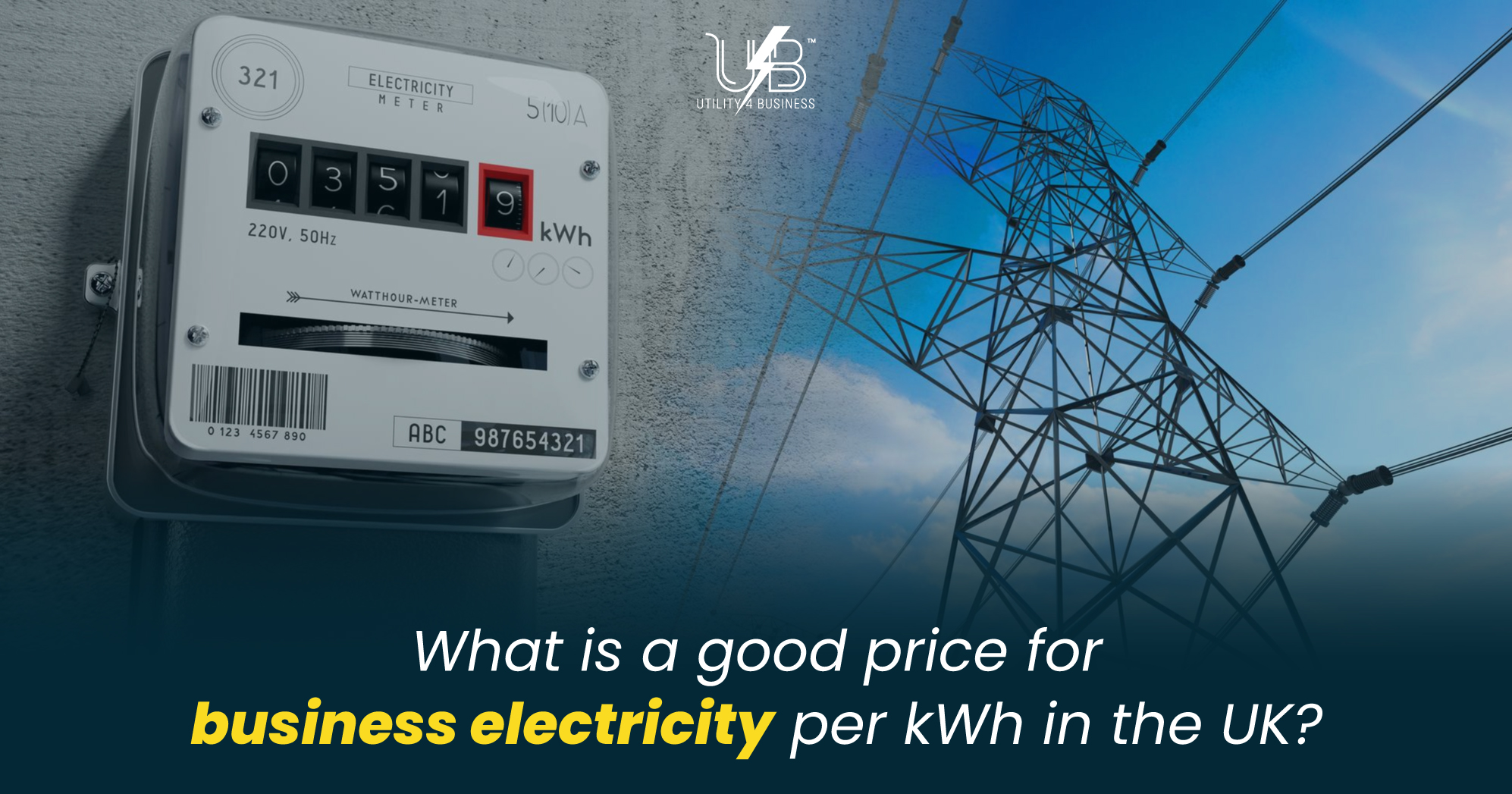What is a good price for business electricity per kWh in the UK?
Good Biz Electricity Rate: What to Pay?

Have you ever looked at your energy bill and wondered what a “good” price per kWh actually is? As of May 2025, most UK businesses are paying between 20p and 26p per kWh, depending on size, contract and location. Electricity often ranks among the top three running costs for businesses of all sizes.
When prices spike, it hits profits hard, and when you lock in a good deal, it frees up cash for growth. In today’s market, rates swing with global events and shifting supply. In this guide, we will walk you through what makes a “good” price per kWh, how to spot one, and how a quick business electricity comparison can uncover your next great deal.
Understanding Business Electricity Pricing
What Is a kWh and Why Does It Matter
A kilowatt‑hour (kWh) measures how much power you use over time. If you run a 1,000‑watt machine for one hour, that’s 1 kWh. Suppliers charge you by the kWh, so every gadget, light or computer adds to your total. The more you use, the more you pay—but you also gain bargaining power if your usage is high.
Key Components of Electricity Bills
- Unit rate: The price you pay for each kWh used.
- Standing charges: A fixed daily fee to cover network and meter costs.
- Additional levies: VAT at 20% (5% for charities) and the Climate Change Levy (0.775 pence/kWh in 2025).
Current Business Electricity Prices in the UK
Average Rates in 2025
Most companies now pay between 20p and 23p per kWh on fixed deals. Before COVID, rates sat below 10 p, so this rise reflects wholesale market pressures. Small firms still see higher unit rates—around 23 p to 26 p—while large users often land deals closer to 21 p.
Variations by Business Size
- Micro‑businesses (up to 5,000 kWh/year): Average 25–27 p, best deals 24.4–26.6 p.
- Small businesses (10,000–50,000 kWh/year): Average 23–26 p, best deals 21–26 p.
- Medium businesses (50,000–100,000 kWh/year): Average 21–26 p, best deals 20.8–26 p.
- Large businesses (100,000+ kWh/year): Average 21–25 p, best deals 20.8–24.9 p.
Regional Price Differences
Network costs vary by area. In May 2025, London and the South East saw unit rates around 25.5 p, but North Wales, Merseyside and Cheshire climbed to about 29.1 p. Standing charges ranged from roughly 55 p/day in London to over 120 p/day in some northern regions.
Typical Business Electricity Rates by Business Size (May 2025)
Factors Influencing Business Electricity Prices
Wholesale Energy Market Dynamics
Global supply and demand set the base price. Events like the Ukraine conflict push up gas costs, and when fuel imports rise, so do your unit rates.
Tariff Types and Contract Terms
- Fixed tariffs lock in a unit rate for 1–3 years, shielding you from sudden spikes.
- Variable tariffs move with the market—good when prices fall, risky when they jump.
- Multi‑rate options like Economy 7 give cheaper off‑peak power if your operation can shift usage.
Additional Costs and Taxes
Suppliers must pass on government levies. You’ll see 20% VAT and a 0.775 p/kWh Climate Change Levy, plus any renewables obligations. Those extras can add up, so always check the small print.
What Constitutes a “Good” Price?
Benchmarking a Competitive Rate
In 2025, a good fixed‑rate deal sits between 20p and 23p per kWh for medium to large users. Deals below 20 p pop up rarely, so grab them if you see one.
Comparing Supplier Offers
Get quotes based on your actual usage and location. Online tools and brokers can show you unit rates, standing charges and levies side by side. A quick business electricity comparison helps you spot hidden fees.
Contract Length Considerations
Shorter deals (1–3 years) give flexibility if prices later dip. Longer contracts may lock in a bargain now but risk leaving you overpaying down the line.
Strategies to Secure a Good Price
Switching Suppliers
Compare major names—EDF, ScottishPower, E.ON—and smaller rivals when your contract ends or if wholesale prices fall.
Negotiating with Your Current Supplier
Armed with competitor quotes, you can often nudge your renewal rate down a few pence.
Energy Efficiency Measures
Fit smart meters, swap to LED lighting, and upgrade old kit. Shrinking your kWh demand lowers both unit costs and standing charges.
Exploring Renewable Energy Options
Consider a Power Purchase Agreement (PPA) for a fixed long‑term rate tied to renewables. It can cut costs and boost your green credentials.
Conclusion
A good price for business electricity in 2025 sits around 20–23 p/kWh for large users and 23–26 p/kWh for smaller firms. Factors like your size, location and contract type all play a part. Stay on top of market swings, compare offers regularly and invest in efficiency to keep costs down. Ready to find the best deal? Visit Utility4Business for a free business electricity comparison and let our experts help you lock in a winning rate today.
Find This Article Helpful? Share It Now!
At Utility4Business, we offer top-notch customer support and business utility solutions for businesses across the UK. Consider sharing this article and helping others discover how our expertise can add value to their business success.

Read Our Latest Posts
Explore our latest blog posts and learn how Utility4Business can support your business growth with tailored utility solutions and services. Stay ahead of the curve with the latest information from industry experts and take advantage of our user-friendly comparison services to find the best business deals.


Get Connected
At Utility4Business, our team of experts can help you figure out the highest-value business utility deals that will help your business grow over time.


